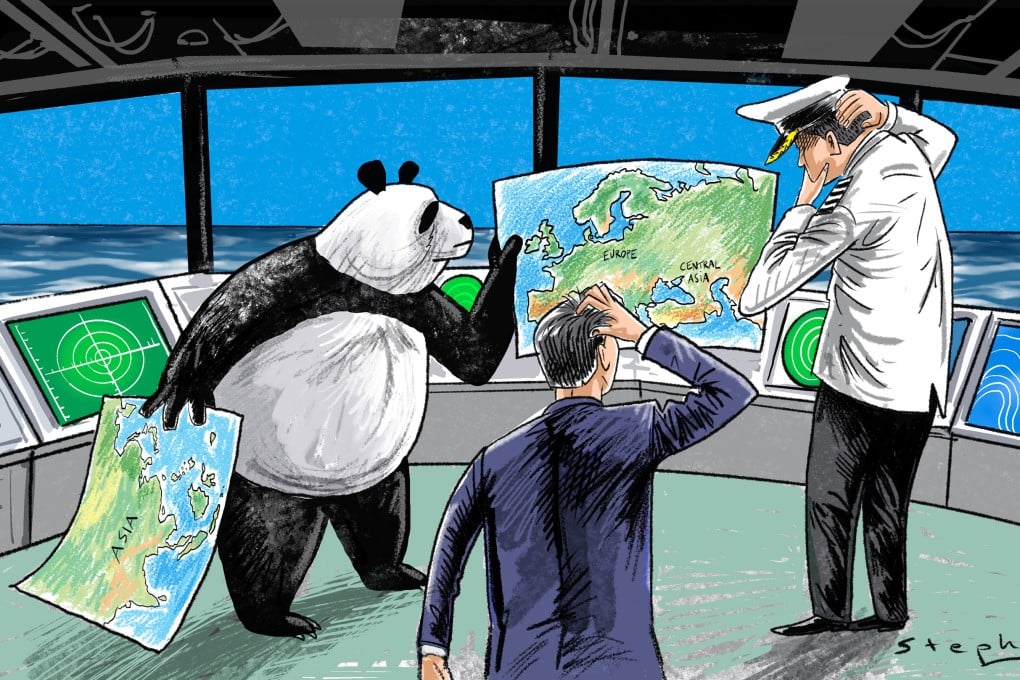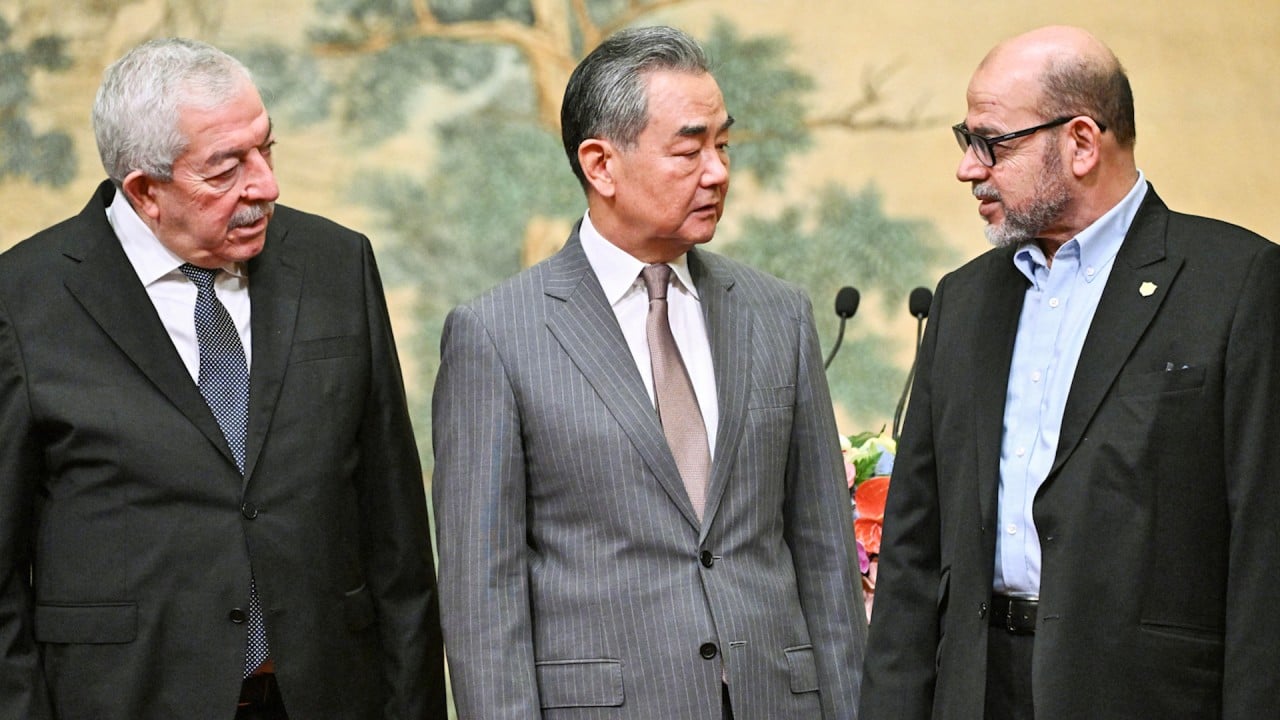Advertisement
Opinion | Why is aspiring naval power China focusing on Central Asia and Middle East?
- Beijing’s increasing diplomatic presence in the Middle East, Central Asia and eastern Europe could complicate its maritime interests in Asia
Reading Time:3 minutes
Why you can trust SCMP
1

Russian President Vladimir Putin’s preoccupation with his country’s invasion of Ukraine is allowing China to dabble in areas once solidly in Moscow’s sphere of interest. Recent diplomatic breakthroughs with regard to Ukraine, Gaza and Afghanistan show Beijing trying to fill this widening political vacuum, even as Putin focuses all his dwindling assets on defeating Ukraine. Such temptations could precipitate Chinese overextension.
Advertisement
First, Ukrainian Foreign Minister Dmytro Kuleba’s visit to Guangzhou for talks with Foreign Minister Wang Yi reflects China’s continental aspirations. In May, China co-published a peace proposal with Brazil to end the Russo-Ukrainian War.
After last week’s talks, Kuleba announced Kyiv’s willingness to open negotiations with Moscow, but only if Russia “is ready to do so in good faith”. While Beijing has offered Moscow its “no limits” friendship and resisted pressure to condemn Putin’s war, China’s foreign ministry has also stated it would “continue to expand its food imports from Ukraine”. Beijing is positioning itself to mediate in the Russo-Ukrainian war.
Second, regarding Israel’s war in Gaza, China negotiated an agreement among Hamas, Fatah and several other smaller factions last week. Each of the parties signed a joint statement saying it would support a temporary Palestinian government for post-war Gaza and the Israeli-occupied West Bank.
While some critics might dismiss these developments as all being for show, others see it as a chance to bring about Palestinian unity. Beijing has again positioned itself to become the mediator, a new role for China in the Middle East.
Third, by recognising the Taliban envoy to China, Beijing became the first government to give de facto recognition to the Taliban government in Kabul. Apparently Chinese communist atheists and Afghan theocrats now have economics in common, in particular the oil pipeline being built through Afghanistan and the 25-year cooperation agreement between China and Iran.

Advertisement

